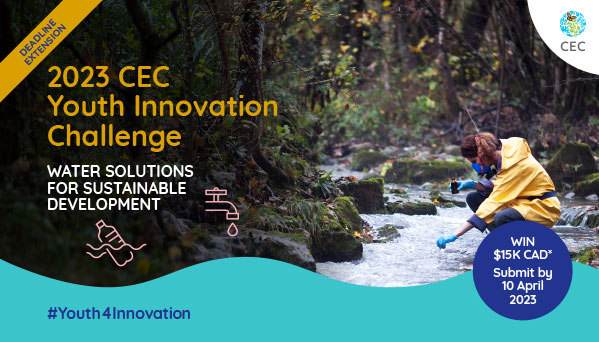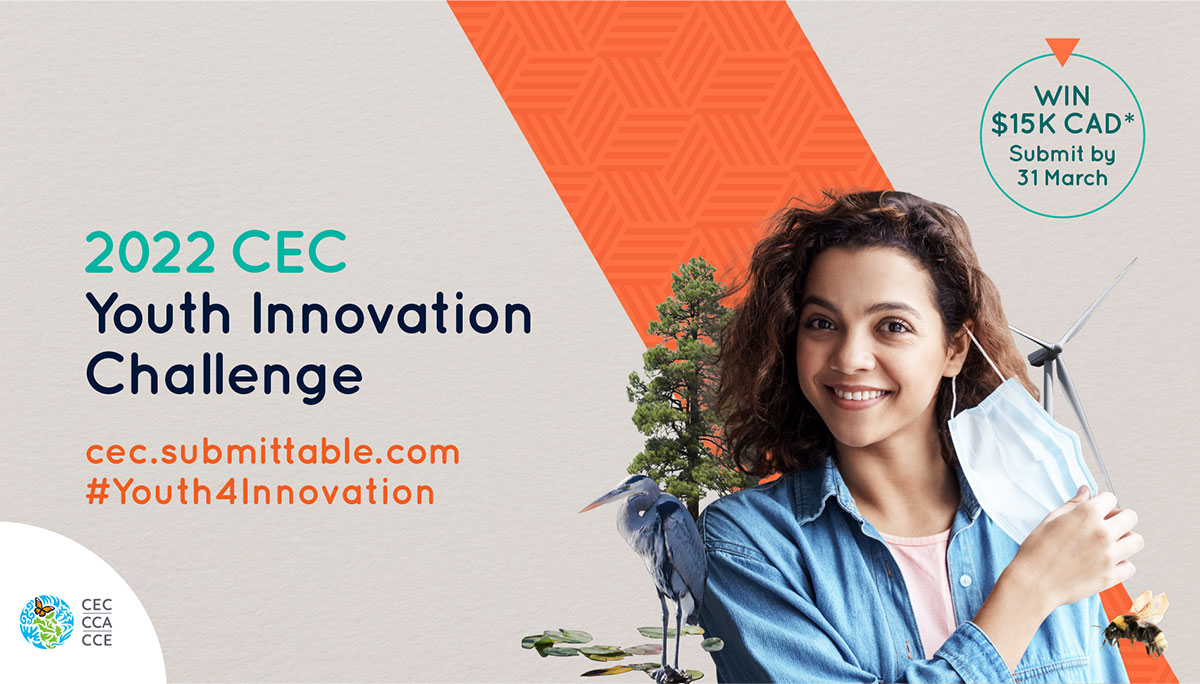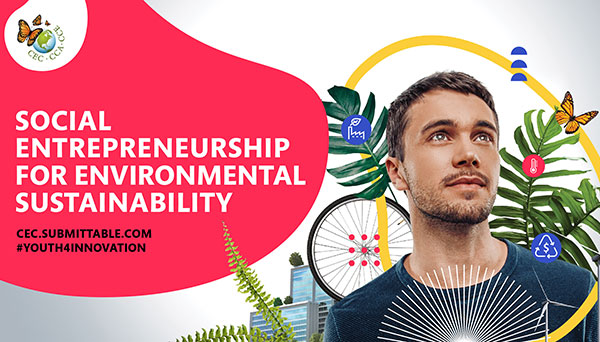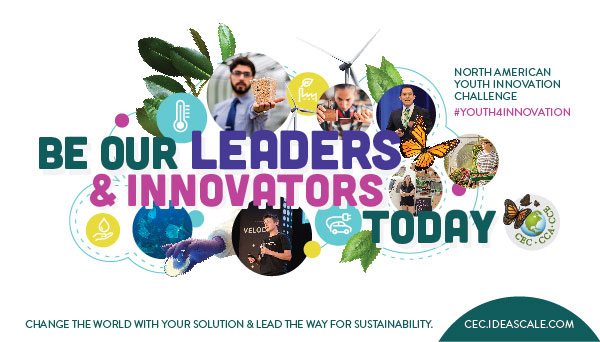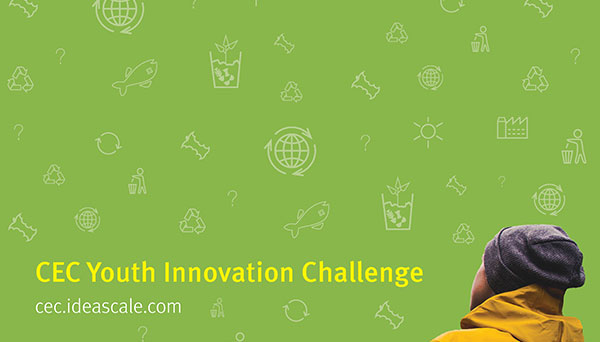Skyrocket your green idea!
The Youth Innovation Challenge was held ahead of the 2018 CEC Council Session, taking place on June 26-27 in Oklahoma City, Oklahoma, United States. Be sure to tune in to our live webcast on June 27 at 4 p.m. EDT, as the winners present their projects to North America’s top environmental officials.
The Challenge was open to North American students and young entrepreneurs ages 18-30 who submitted their innovative solutions for improving both the environment and the economy in North America. Their ideas were crowdsourced—enabling submitters to capitalize on feedback from over 2,900 North American youth registered on the crowdsourcing platform. Over 200 ideas were evaluated by the CEC Idea Evaluation Panel and CEC experts, and nine semifinalists were selected to develop their ideas into full proposals. Winners were selected by the CEC Council.
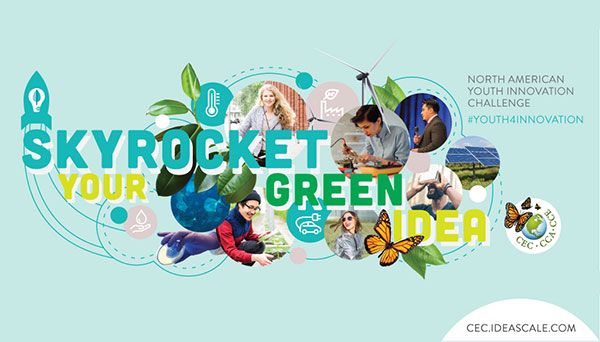
Winners of the 2018 CEC Youth Innovation Challenge Announced
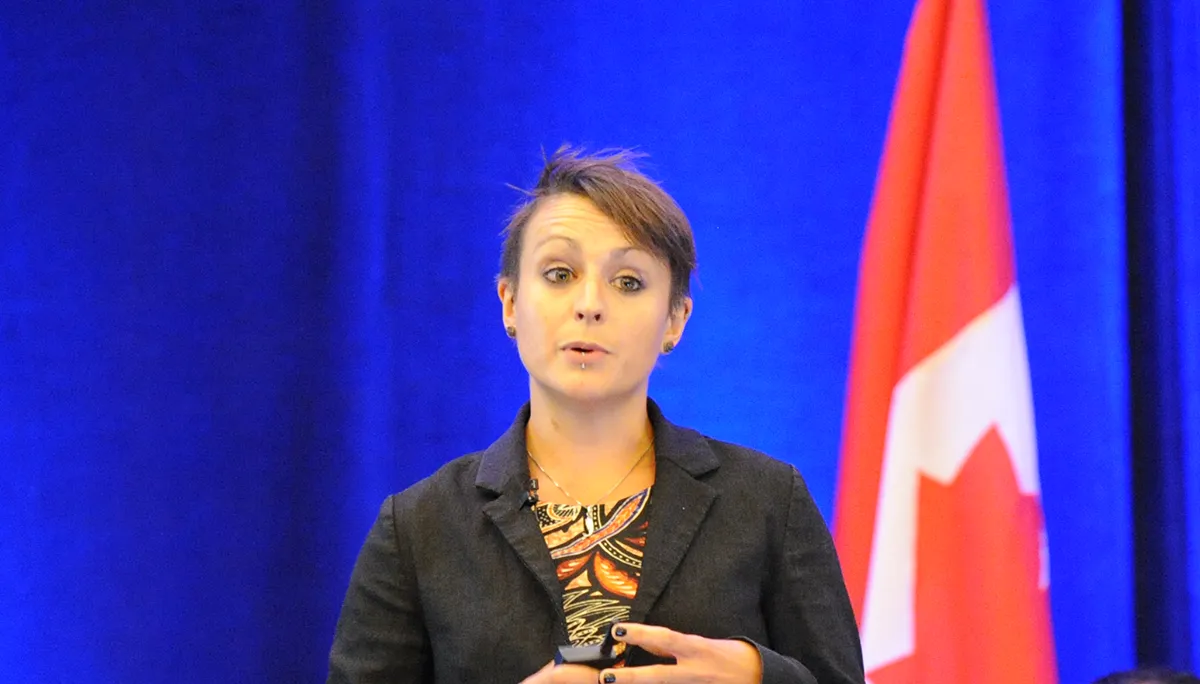
Stop eating your dirty laundry - Our solution to microplastic pollution
Lauren Smith and Nicole Balliston
Microplastic pollution is a growing problem, gaining attention through bans on microbeads and straws, yet little has been done about the largest contributor, microfibres.
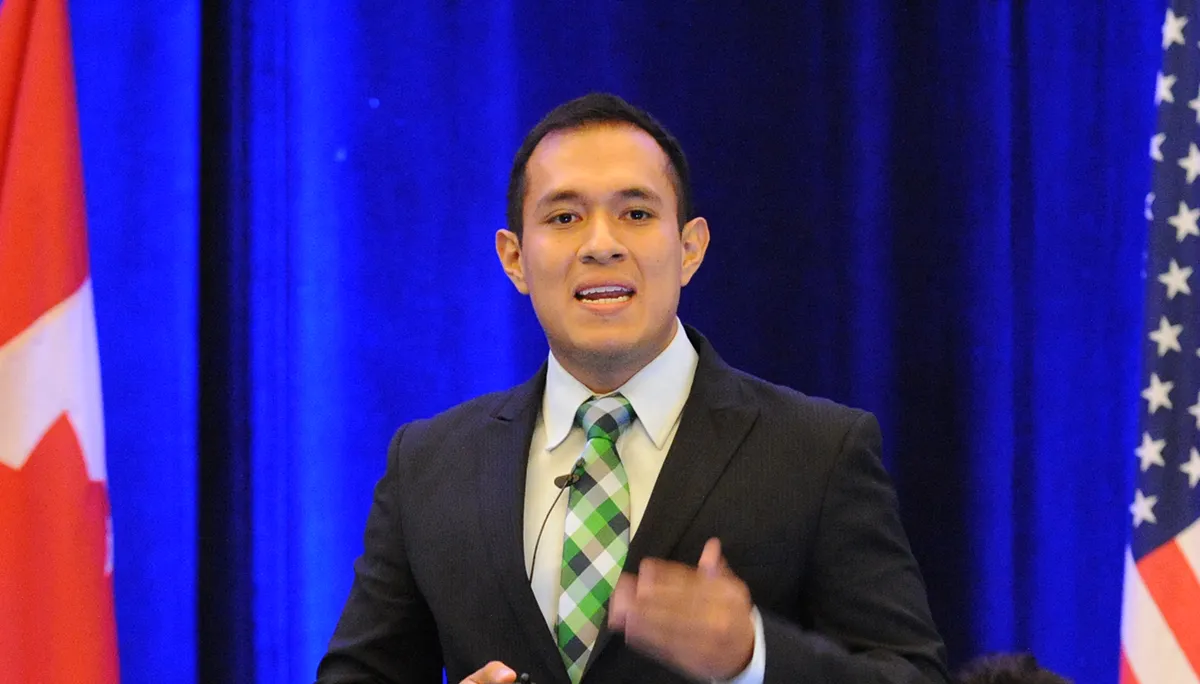
Management of wastewater and organic waste with the use of insects
César Asensy Maldonado Monter, José Luis Ortiz Robles, and Héctor José Garrido Rosales
We transform wastewater and organic waste into sustainable products using insects. In Mexico, it is estimated that 60% of domestic and agri-food wastewater is released to aquatic bodies without any treatment, while 30% of all food is wasted.
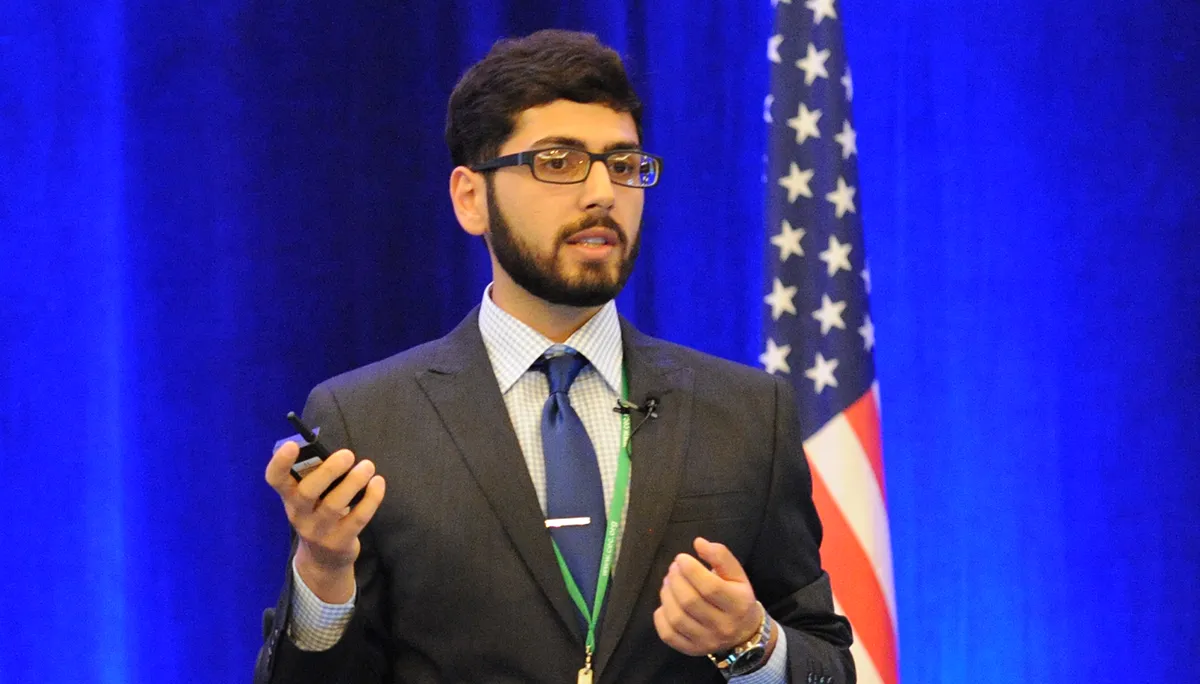
Future Fungi - An environmental solution to plastic issue
Nima ShahabShahmir
My business idea is called Future Fungi and it focuses on solving the plastic trash disaster issue across the planet by introducing a new environmental-friendly material.
Other Challenges
For more information, contact:
Georgina O’Farrill
Head of Unit, Communications, Outreach and Engagement
(514) 350-4336
